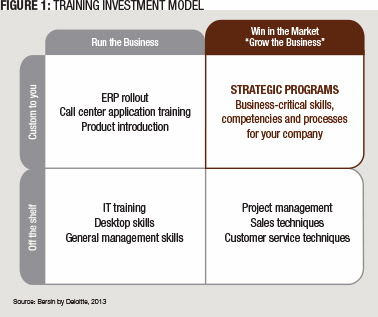For the past 16 years, I have served at the Kellogg School of Management as the academic director for the National Minority Supplier Development Council’s (NMSDC) Advanced Management Education Program (AMEP). The program convenes annually in Evanston, Ill., and consists of 35 handpicked minority entrepreneurs engaged in four days of educational discussion. Most recently, during a meal, a bright and successful young entrepreneur told me a story of when a buyer at a Fortune 500 company asked him: “Why should I give you a contract because you are a minority?”
I immediately responded, “You should tell him no one should get a contract, irrespective of race, gender or ethnicity, if they do not offer a quality service or product.” We know this is not often the case, as contracts are consummated at country clubs across the nation. However, I have been asked this question many times over 30 years and was unsatisfied with my quick response. Sixty years after the start of the civil rights movement, why do we still have special programs for minorities? I have concluded the business case for minorities rests on six realities.
1. By 2048, the majority of the U.S. will be minority.
• Some have stated this is not a valid projection because immigration from Mexico will decrease.
• As demographic shifts continue, unless we start to plan, the economy will be negatively impacted.
2. While there is a growing young minority population, white America is aging.
• In 2010, the ratio of worker to retiree was 4.6:1. In 2040, it is projected to be 2.7:1.
• A larger percentage of the workforce will become minority, increasing by more than 75 percent by 2050.
• Minorities will be vital for the survival of Social Security, Medicare and the nation’s continued economic success.
3. Job creation is the No. 1 challenge to the U.S. economy today and will remain a challenge for the next five to eight years.
• Unlike the previous recession, the jobs will not be created in manufacturing with low-skilled labor. Technology advancement requires high skills.
• Big business will not be creating jobs for 25- to 54-year-old men and women. It will have to be small and medium-size businesses.
4. Minority business owners hire their own.
• Numerous studies by Timothy Bates of Wayne State University documented this and the many reasons for its occurrence: multigenerational loyalties, ethnic pride and language facility to name a few. However, with many of the entrepreneurs in the AMEP program, often it is just a desire to give back and support the community.
5. Minority youths need to have positive options.
• There have been more than 200 murders in Chicago so far this year, up from 139 last year. The majority of minority youth are hardworking, motivated students. As a nation, if we can save a thousand or million youths from being inducted into gangs, we will save lives.
6. Many minority businesses offer quality services and products at competitive prices.
• As more minorities have left corporations, minority firms have received them.
• Minority entrepreneurs with relatives and friends outside of the U.S. have access to invaluable strategic partners in emerging economies.
This is my business case, a case accepted by major corporations such as Johnson Controls, Toyota, PepsiCo, Kraft, Allstate, and CEOs such as Steve Reinemund, who since leaving office at PepsiCo has crossed the nation selling diversity ventures; Joset Wright, president of the NMSDC; Steve Rogers, professor at the Kellogg School of Management; and the thousands of corporate officers such as Adrienne Trimble, Monetta Stephens and Gene Tabor who dedicate their lives to making minority business enterprises strong and lasting.
In the end, it will take leadership at all levels to enlighten those who doubt the value of minority business. To those who question why we support minority business during this economic crisis, I say, to do otherwise would be short sighted and a mistake.
James H. Lowry is a senior adviser for Boston Consulting Group and inaugural member of the Minority Business Hall of Fame. He can be reached at editor@diversity-executive.com.















